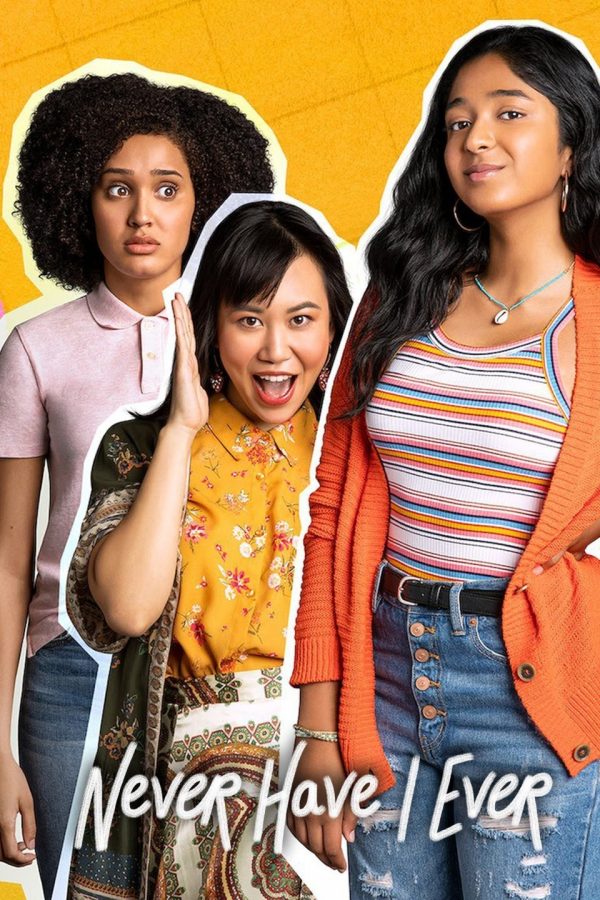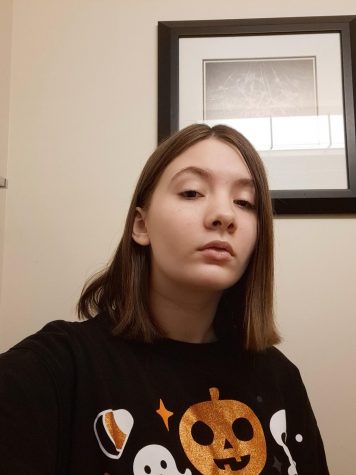‘Never Have I Ever’ breaks the mold
March 9, 2021
The Netflix original series “Never Have I Ever” follows the story of a young Indian-American girl named Devi (Maitreyi Ramikrishnan) as she tries to improve her social life following a traumatic freshman year. Created by Mindy Kaling and Lang Fisher, the show presents sides of the teenage experience–loss, love, and self discovery–that are very seldom highlighted in most media.
In modern entertainment, we see little to no representation of non-American cultures and customs. “Never Have I Ever” accurately represents Devi’s Indian culture, and even squashes stereotypes and tropes portraying Indian customs as bad, or something to be rescued from.
With one of the show’s creators, Mindy Kaling, being Indian herself and basing aspects of Devi’s story on her own youth, the show feels authentic and genuine in its representation of Indian culture. We also see how Devi can sometimes be indifferent to her own customs, and we get to watch her learn that it’s okay to take pride in who she is as an Indian-American person.
The show also features Devi’s two best friends, Eleanor (Ramona Young) and Fabiola (Lee Rodriguez), both of whom are not white. More often than not, the friend group of the main character will contain at least one (or more) white person, but “Never Have I Ever” features Devi, who is Indian-American, Fabiola, who is Black, and Eleanor, who is Chinese-American.
This trio stands out to me as possibly the first non-white main group that I’ve seen in my time as a media consumer, and that is groundbreaking. Why does it matter so much? Think back to just about any main-stream entertainment you’ve seen. The main character is almost always white, surrounded by a bunch of other white people, and maybe (if you’re lucky), a token POC character. After a while, half-baked “representation” must become tiring.
“Never Have I Ever” is inclusive with an array of different races, cultures, and ethnicities in its characters. This may not seem like a very big deal, but compared to the endless slew of white entertainment, authentic representations of foreign cultures and unforced inclusivity in TV shows is big, and it’s something to commend.
While the subject of the show’s representation of Indian culture remains one of the biggest hot-topics surrounding the Netflix original, “Never Have I Ever” also takes some big steps regarding sexuality in teens, family tension and struggles with mental health–all of which are topics that are desperately avoided in the productions of most TV shows (especially ones rated TV-14).
One of the main plot points is Devi’s goal to have a fulfilling (and not humiliating) sophomore year. In her freshman year, her father passed away. This took a huge toll on her mental health, and certain events following left her the talk of her school. She was determined, however, to make her sophomore year exciting. How? By having sex with her crush, Paxton Hall-Yoshida (Darren Barnet).
The topic of sex and sexuality in teenagers is avoided like the plague, but ignoring it won’t make it go away. “Never Have I Ever” does a fantastic job of capturing Devi’s desire for romance, confusions and apprehension regarding sex, and her process of understanding why she wanted it so badly.
Throughout the series, Devi has several chances to fulfill her sophomore year goal, yet she always finds herself avoiding the act. She would have conversations with her psychiatrist, Dr. Ryan (Niecy Nash), about how much she thought she wanted to sleep with Paxton, but couldn’t bring herself to do it. Dr. Ryan ends up helping Devi realize that it wasn’t really sex she wanted, and that she confused her desire for sex with a desire for love, or a way to fill the emptiness left behind after the loss of her father.
While Devi is the main character and her family problems are the main focus, the show also features the family problems of her companions. Secret siblings, fear of acceptance, big lies, and emotional neglect are all issues that different characters deal with in the shadow of Devi’s story. These topics are also sensitive, and largely avoided in entertainment, but I appreciate that nobody in the show has a perfect relationship with their family. The rawness and realism of what these kids are struggling with can resonate with viewers who are going through the same thing.
Overall, this show has done an amazing job realistically capturing the high school experience that many kids really deal with, beautifully representing Indian culture, healthily covering topics of sexuality and mental health, and pulling it all together with heart and comedy to create a show that you can’t stop watching. Season 2 of “Never Have I Ever” has been confirmed and is in the works, set to be released sometime in 2021.

